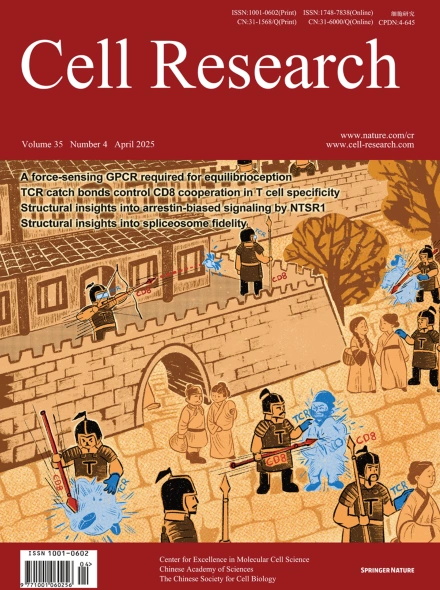
Advanced Search
Submit Manuscript
Advanced Search
Submit Manuscript
Volume 35, No 4, Apr 2025
ISSN: 1001-0602
EISSN: 1748-7838 2018
impact factor 17.848*
(Clarivate Analytics, 2019)
Volume 35 Issue 4, April 2025: 233-234
Stressing out the intestinal microbiota via a brain-neuroglandular circuit
Wen Zhang1,2,3,4,5,* , David Artis1,2,3,4,5,*
1Jill Roberts Institute for Research in Inflammatory Bowel Disease, Weill Cornell Medicine, Cornell University, New York, NY, USAA new study published in Cell identifies a stress-sensitive brain-neuroglandular circuit that regulates the intestinal microbiota and systemic host immunity. Chronic stress inhibits the duodenal gland activity, which drives intestinal dysbiosis and impaired host immunity to pathogens.
https://doi.org/10.1038/s41422-024-01047-7